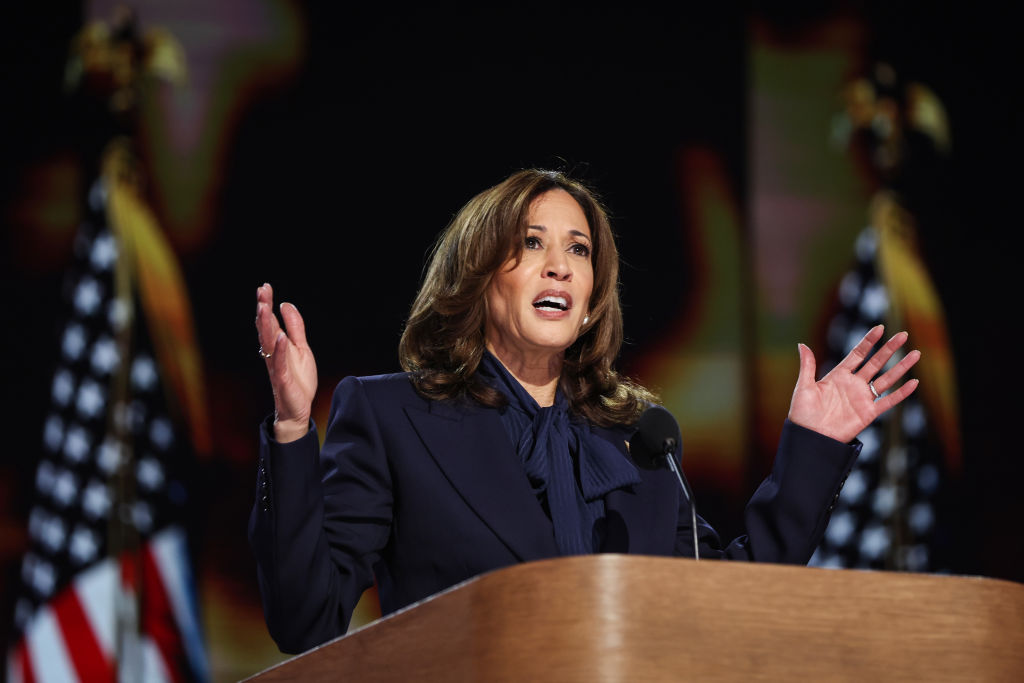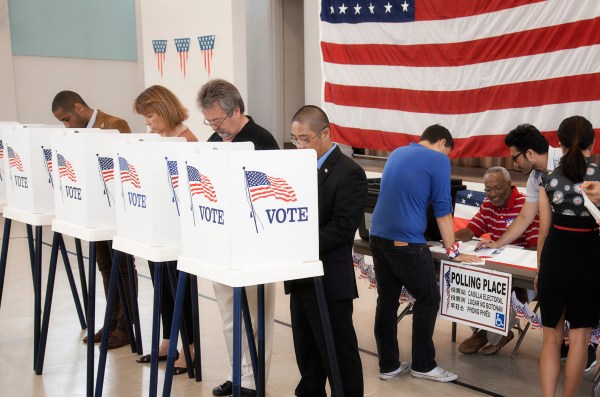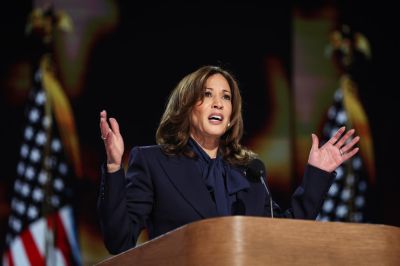At our most recent installment of the American Enterprise Institute’s Election Watch, we heard from Bill McInturff, the Stan Musial of Republican pollsters—gifted but not gaudy.
Bill shared a story from his time working at the Republican National Committee back in the days when parties, not super PACs, really ran campaigns. He and his team were looking for ways to teach political strategy to the young people, so they went to the folks who taught strategy at the military war colleges for advice.
Bill learned that in the war games that were used to assess the capacities of America’s military elite, only 30 percent of the grade was based on execution of a strategy. The other 70 percent was based on how well the participants could predict what their opponents would do.
That struck Bill as a good way to think about it, which is why it came to mind when he was talking about the presidential debate to be held tonight, hosted by ABC News at the National Constitution Center, just up the mall from Independence Hall in Philadelphia.
A candidate might get a passing grade if she or he could only properly predict their opponent’s strategy, but the margin of victory comes in the next 30 points for effective execution.
In that sense, Vice President Kamala Harris starts at a distinct disadvantage. For all of the more than a dozen times that Trump has debated as a presidential candidate in the past nine years, it’s anybody’s guess who will show up on stage with Harris.
Will it be the Trump who mostly stayed on talking points— with some notable exceptions— in his June matchup with then-opponent President Joe Biden?
Or maybe the scenery-chewing pro wrestling villain of his first debate with Biden in 2020? Maybe it will be sad Trump, bearer of his many grievances.
There are hundreds of people in Trump’s orbit who devote considerable time and energy to predicting and controlling his many moods — a kind of “red socks” brigade. If Cabinet secretaries and generals couldn’t figure out how to deal with Trump’s mercurial nature, what chance do Harris and her team have of accurately predicting which version of the former president they will get?
Harris has reportedly been doing full 90-minute dress rehearsals with longtime Hillary Clinton aide Philippe Reines even dressing up like Trump to play the role of her adversary. But how would Reines know which Trump to impersonate?
At least the Harris campaign isn’t making the same mistake Clinton did in her debates with Trump, when she tried to dismiss him as unserious, and got a snoot full of Trump’s most effective setting: the defiant one.
This is made even harder for Harris by the fact that Trump has only one job: to keep himself under control. It won’t be easy for him. But Harris has at least three tasks that she must accomplish.
First, she has to seem plausible. She certainly managed that in her first make-or-break moment of the campaign, with a Democratic National Convention acceptance speech that looked and sounded very much like something a president might do. But she has never met Trump, let alone been on stage with him. He’s physically imposing, and he’s devoted himself to playing the role of president for a decade. Indeed, his is the image that still springs to mind for many when they think about that office, even the ones who despise him.
There’s not much Harris can do about the plausibility problem. Either she has it, or she doesn't. The 6 percent or so of undecided voters will take most of their conclusions from how the candidates look and seem on stage. Trump is fond of describing people as being out of “central casting,” but lots of low-information voters will make up their minds in the same way.
The good news is that she has very modest expectations for her performance and plenty of voters still open to letting her pass the plausibility test. She just needs to be someone those voters can imagine leading the country at war or in a crisis, and she certainly looks the part.
Next is remediation. Harris has sprinted to the center on a host of subjects. This will be the moment we find out if she has a compelling story to tell about why she did. She’s working against a double standard with Trump here. The good news for Harris is that by a wide margin voters think she is of better character than Trump. The bad news is that she could disappoint them, while Trump is a known quantity.
In the most recent Pew Research poll, Harris was 8 points ahead of Trump on the question of honesty. Lots of people who think Trump is a liar will vote for him anyway, either believing that he lies on their behalf or that they can accept the dishonesty as a price for policies they prefer. When Trump flip-flops, no one is surprised. Harris not only has to explain a radical change in her positions since her first presidential run in 2019, but do it in a way that doesn’t seem phony.
Americans very nearly reelected Trump knowing that he was unserious about policy and serially dishonest because many liked—and still do—the way things went under his administration. Americans generally dislike the direction of the country in the Biden era, so Harris has to get distance from her boss, but won’t be afforded the same low expectations for integrity and coherence that voters have accepted for Trump.
To remediate her policy problems, Harris has to tell a convincing story that will depend more on a narrative arc than details or semantic technicalities. She has some good options, including explaining how both she and the world are different from five years ago, but it’s not a forum well suited to storytelling. She’ll have to do it anyway.
Her third task is to annoy Trump without being annoying to the rest of the country.
Clinton, via the New York Times, gave Harris some unsurprisingly bad advice, starting with the claim that, “The consensus was that [she] won all three debates and that [she] was well prepared.” Ugh.
One of Clinton’s suggestions was to “brush Trump back and not let him be the center of attention all the time” because “he can be rattled” by “substantive, direct attacks.”
This is almost exactly wrong. Harris should very much hope that Trump is the center of attention. In a perfect world for her, Trump would be the one talking well more than half the time. As we saw in his own convention acceptance speech, the longer he talks, the worse he gets.
Clinton’s advice may be good for winning an individual debate, but it is certainly possible to win a debate and lose the presidency. Voters who might be swayed by substance have mostly been swayed already. The persuadable ones are watching this debate and the coverage of it after the fact for a sense of what the new candidate is like. Harris needs to know the subject matter forward and backward, but it will be her mastery of herself, not the material, that will make the difference.
Rather than focusing on direct attacks to rattle Trump, she’d be better off to make sure she keeps her cool. Little annoys Trump more than being ignored. Rather than emulating Clinton and acting like a college debater, Harris would do better to follow the example of former German Chancellor Angela Merkel, who really got up Trump’s nose by refusing to engage.
Harris has shown she understands the virtues of giving Trump the cold shoulder, and would be well advised to stay aloof rather than trying to “rattle” him. Nothing rattles Trump more than being ignored. That’s also the best way to achieve her third objective of annoyance without doing any violence to the work of plausibility and remediation.
That’s her path to taking care of the 30 percent of this contest she can control—a solid strategy for political warfare. Tonight we find out what the other 70 percent will look like.







Please note that we at The Dispatch hold ourselves, our work, and our commenters to a higher standard than other places on the internet. We welcome comments that foster genuine debate or discussion—including comments critical of us or our work—but responses that include ad hominem attacks on fellow Dispatch members or are intended to stoke fear and anger may be moderated.
With your membership, you only have the ability to comment on The Morning Dispatch articles. Consider upgrading to join the conversation everywhere.